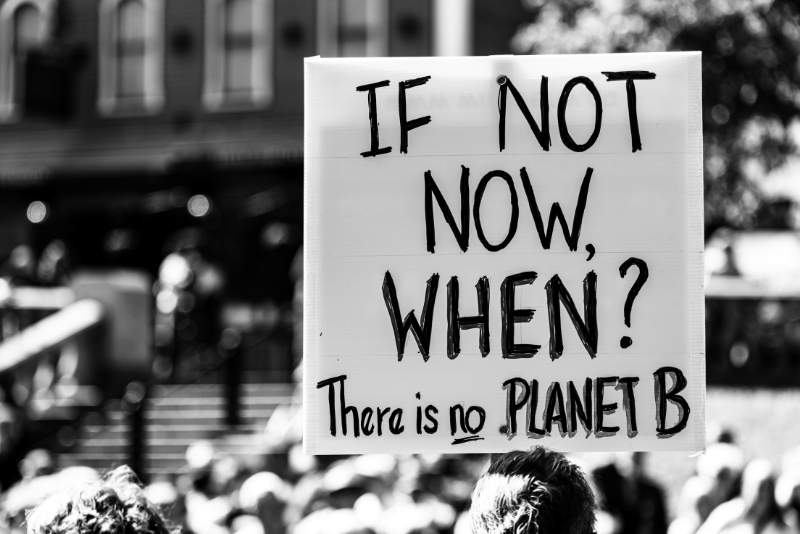
Climate change is the change in global or regional climate patterns that occur when changes in atmospheric and geological compositions alter the balance of the various natural processes. It has has changed throughout history, but the term “climate change” more often refers to anthropogenic(originating in human activity) climate change.
Climate change is best illustrated by the melting of polar ice-sheets. It has resulted in a rise in sea level, which may lead to coastal flooding and erosion. This could damage cities and infrastructure that are built close to shorelines.
It will also affect agricultural production by changing weather patterns which will have dramatic implications on food security, human health, and consequently result in severe poverty around the world.
Climate changes impacts every aspect of our lives including our economy, food production, water resources and so much more. On the brighter side, there are steps we may take to delay or more so hopefully avoid the catastrophic consequences. Here are seven of them:
Limit Your Energy Usage
In order to meet the demand of the rising population, we have been exploiting our natural resources quite unsustainably. The declining natural resources have led to an increase in fossil fuel consumption and the emission of greenhouse gases which play a major role in warming up the planet.
This warming up of the planet infamously known as the phenomenon of “Global Warming” is one of the most talked about topics when it comes to this field of interest. It’s portrayed everywhere as this big yellow monster that’s headed to swallow the planet whole . And you know what? It’s not at all an overstatement. It’s high time we become aware of issues that need immediate attention.
Limiting energy usage is one of the important steps towards a better environment as it helps reduce our carbon footprint by cutting down on energy smog. It will also make us divert our attention to renewable energy sources that are more sustainable and dramatically less damaging to the planet.
Reduce Meat Consumption
With the increase in global population, it is necessary to find sustainable ways of food production. And this is where reducing meat consumption comes into picture. We are all aware that meat industry is one of the major producers of greenhouse gases.
To give you a brief idea, beef generates about 60 kilograms of greenhouse gas emissions per kilogram of meat produced. That’s a disturbing statistic. So, how can we reduce meat consumption? Here are some pointers:
- Eat a little less red meat. Replace it with poultry or sea food.
- Choose healthy plant-based foods like beans, nuts, whole grains, and other veggies to compensate of meaty nutrients.
- Realise that by consuming less meat, you are making a direct contribution to a better environment.
Manage Waste Properly
According to the EPA, about 30% of our energy bill goes into powering our garbage disposal. And that is just one of the many ways in which the disposal of our trash contributes to climate change.
The environmental impact of waste is huge, and reducing it is one major way we can combat climate change. Cliché alert: Waste management starts at home.
Use Renewable Energy Sources
Around 11% of the total energy consumption in today’s world comes from renewable sources. It’s impressive but we can do better surely. Renewable energy sources can reduce carbon emissions and slow down global warming.
They also offer a more environment friendly, sustainable, and cheaper source of power for households and businesses. Solar panels are getting more and more popular and it’s definitely a worthy investment to make.
Plant Trees for Natural Air Purification
The air around us today is much more polluted than it used to be. The reasons are many: cars and trucks, factories, power plants, forest fires to name a few. One sure-fire way to combat this is by planting more and more trees.
Through a process called photosynthesis, green leaves take in carbon dioxide and water plus the energy of the sun and convert them into chemical compounds like sugars that feed the tree.
As a by-product of that chemical reaction oxygen is produced and released by the tree. Taking in carbon dioxide and giving out oxygen; can’t get any better than this.
Use Less Plastic
The plastic waste problem is getting worse with each passing day. An estimated 3% of all the plastic produced worldwide ends up in the ocean.
One report projects the oceans will contain at least 937 million tons of plastic and 895 million tons of fish by 2050. Plastics and aquatic wellbeing don’t go together.
In fact, plastics and our planet are a mismatched couple. And guess who’s the matchmaker? It’s us. The science is on the table. Let’s choose to see it.
Use Less Transportation Fuel or Switch to Electric Cars or Buses
Electric vehicles contribute significantly to improving air quality in cities and towns mainly because they do not have a tailpipe to emit carbon dioxide while driving. Replacing just one conventional vehicle with an electric one can prevent an average of 1.5 million grams of Carbon dioxide emission annually. This greatly helps limiting air pollution.
Everyone has a role to play in decelerating climate change, and there are many ways to go about it. In this article, we’ve identified seven ideas that we can personally implement to help the case. It doesn’t matter how tiny the contribution may be—the only thing that matters is trying. Try your best. It’s a request. The future depends on it.
Updated: March 2nd, 2022, 11:00 [IST]
Want to write for this section? If you have landed on this page hoping to submit a guest post to our website please write to us at contact@gangtokian.com
If you enjoyed reading this, you may also like: Best Content Streaming Services
















































